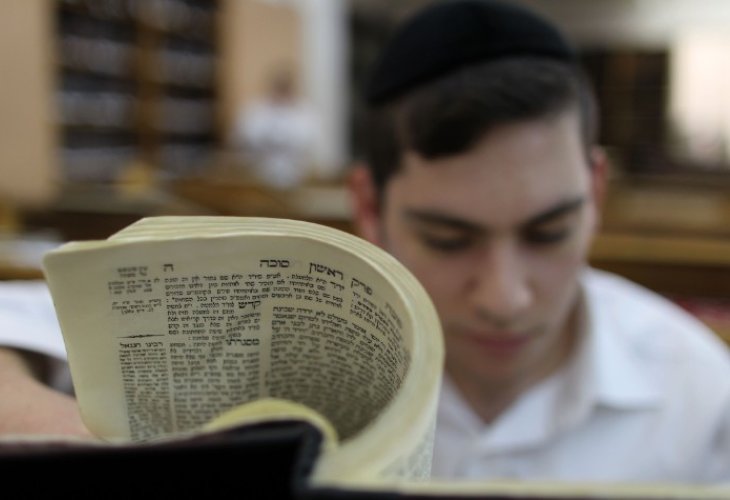This Type of Shopping Only Happens in Ultra-Orthodox Neighborhoods
An open-air sale without supervision to ensure customers don’t take unpaid items is a typical sight in Ultra-Orthodox neighborhoods.

You haven't experienced shopping like this before unless you live in an Ultra-Orthodox neighborhood.
The kickoff for this shopping is the advertisement of 'The Big Sale.' How is it advertised? Mainly via local ads. This sale, no matter who organizes it, always promises the same thing: fairly basic products at the cheapest prices. And before Passover, who doesn't need basic supplies? Vegetables and fruits, salt and sugar, baking paper and hot drink cups, chocolate (is that not a basic item?), and coffee.
Then comes the second stage, where people call an order line to select products. (Yes, indeed! These sales have no website or even an email address. If you want to shop through them, you can call a special line where the offered items will be read to you, and you choose the groceries you want).
 (Photo: shutterstock)
(Photo: shutterstock)The third stage is truly fascinating, deserving of anthropological research. At this point, a truck arrives at each Ultra-Orthodox neighborhood hosting the sale and unloads products: piles of potatoes, alongside piles of oranges, alongside piles of chocolate, and so on. The products are usually spread out in a half-empty parking lot or the wide yard of a building.
After unloading, consumers begin to arrive. The sale is typically allotted half an hour to an hour. During this time, two young girls sit at the edge of the area, and everyone who arrives passes by them, says their name, receives a form with the list of ordered products, and pays. After payment, they go to collect their items.
Yes, you read that correctly. You pay first, and only then pick up the items you've ordered. And no, there isn't anyone supervising to ensure you collect only what you ordered. Your form might list only a package of red peppers and a bag of sugar, but if you feel like taking some red grapefruits and disposable utensils—no one will stop you. No one checks or asks anything.
Every time I witness these sales, I'm amazed anew. I see people passing by particularly tempting colorful fruits, stopping, peeking at their list—recognizing they hadn't ordered that fruit, and moving on. Even young children sent to collect the groceries resist the temptation. I see them stopping by excellent nut chocolate, staring longingly, checking the list, and... moving on. Mom didn't order nut chocolate. And yes, no one would know if they took... but their education stands firm without any supervisor watching their steps.
The way home from the sales deserves an anthropological observation in its own right. Most purchasers at these sales do not own cars. Therefore, the most popular vehicle at the sales sites is strollers. Instead of a toddler, the stroller carries a pile of products, with another stack traveling in the compartment underneath, and some items enjoy an excellent view from the canopy that unfolds to serve as a makeshift shelf.
Sometimes, observing the buyers leaving the sale area, struggling with fully loaded strollers, I wonder if a casual observer might feel pity, if such a spectator wouldn't think with satisfaction how fortunate they are to afford shopping at an airy and air-conditioned supermarket and load their purchases into the car's trunk.
Such a casual observer, of course, would be entirely wrong. The Ultra-Orthodox who shop at these street sales deserve envy—not pity. Every time I see the impeccable order prevailing at the sale, the strict adherence to lists, the products always sufficing exactly because no one dreams of taking something they didn't order—I realize this anew. In spacious and air-conditioned supermarkets, there is a guard, and staff members keeping an eye on the shoppers. But what enables the continued successful existence of these Ultra-Orthodox neighborhood sales is something much more special—*yirat Shamayim*.

